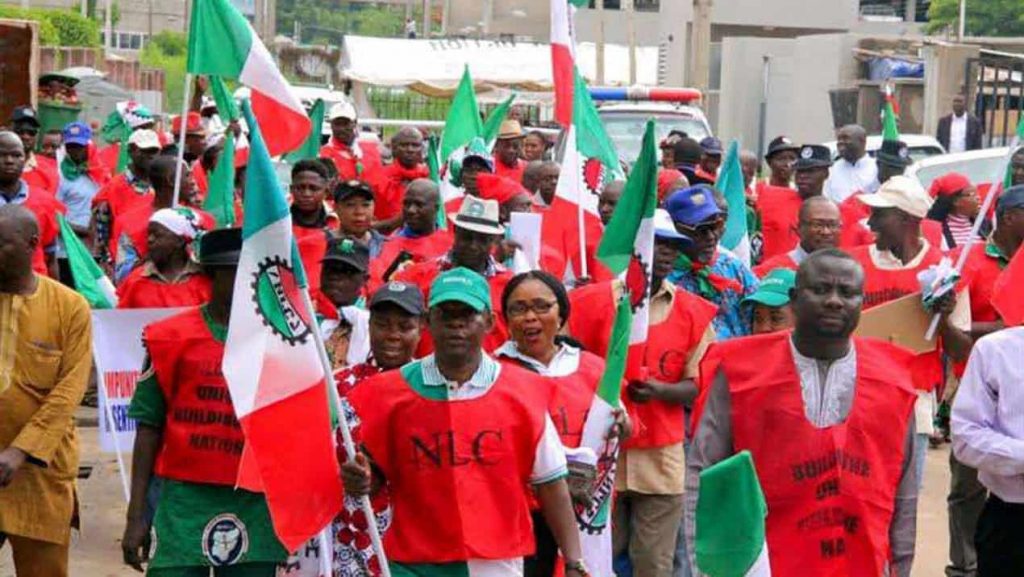The Nigeria Labour Congress (NLC) and the United Labour Congress (ULC) have settled their crisis that split the labour movement in the country.
The President of NLC, Ayuba Wabba, disclosed this at a joint media briefing of the two labour unions in Abuja on Thursday.
The briefing was attended by the President of the ULC, Joe Ajaero, and other executive members of the union.
Mr Ajaero was announced as the new Deputy President of the NLC.
The Ajaero-led faction of NLC announced the birth of the ULC, with over 25 affiliates including some aggrieved affiliates of Trade Union Congress (TUC), on December 18, 2016.
Some of the prominent members of the ULC were the two powerful oil unions, National Union of Petroleum and Natural Gas Workers (NUPENG), and Petroleum and Natural Gas Senior Staff Association of Nigeria (PENGASSAN).
The affiliates of the ULC also include Nigeria Union on Electricity Employees (NUEE), Nigeria Union of Mine Workers, National Union of Banks, Insurance and Financial Employees (NUBIFFE), Nigeria Union of Rail Workers, National Union of Lottery Agents, & Employees, Association of Nigeria Aviation Professionals (ANAP) and National Association of Aircraft Pilots and Engineers (NAAPE).
Throughout the fight between the unions, the ULC wielded influence in the petroleum industry, power sector, financial, aviation, manufacturing and telecommunication sectors among others.
Mr Wabba said the NLC and ULC always cooperated and collaborated in defending Nigerian workers.
“With this reconciliation, the leadership and structures of the United Labour Congress have been reintegrated into the Nigeria Labour Congress. In the reconciliation Memorandum of Understanding signed between the two leaders, the modus operandi for this re-integration and ancillary issues are spelt out to the satisfaction of both parties,” he said.
Also speaking, Mr Ajaero reiterated what the NLC president said.
“I want you to know that we are back to our family. If we follow our emotions, we will not be back but we are back to confront those who want to confront us,” he said.
Until the first appearance of ULC as the third force, the NLC and Trade Union Congress (TUC) championed the cause of Nigerian workers.
Ajaero had refused to step down for Mr Wabba in the wake of the disputed outcome of the March 2015 National Delegates Conference (NDC) in Abuja.
All interventions made by those sympathetic to the labour movement, including former Edo State Governor Adams Oshiomhole and other past labour leaders, yielded no positive results. The gulf between the Wabba and Ajaero factions did not reduce.
The disagreement between the factions played out in the failure of the organised labour to mobilise Nigerians to protest the withdrawal of petrol subsidy by the federal government in 2015.
Ajaero led his faction to collaborate with the government in finding a solution to the issue while the Wabba-led faction opted for a nationwide strike, which was anything but successful.
As Wabba and Ajaero continued to battle for the past five years, their members remained at the mercy of the government as the organised labour lost its common voice on issues affecting workers’ welfare.
